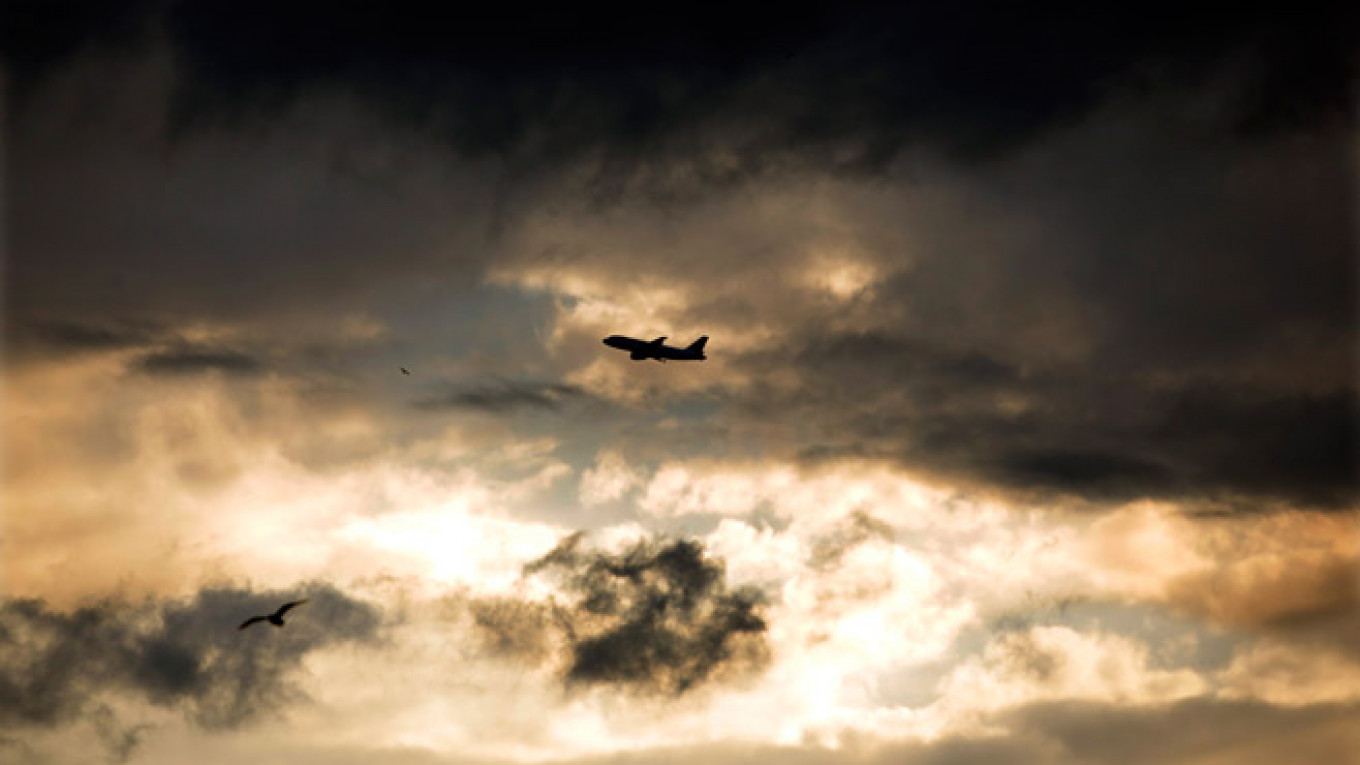Russia's Defense Ministry on Sunday denied Swedish claims that for the second time this year a Russian military aircraft had nearly collided with a passenger jet over Sweden, insisting that the two planes were never less than 70 kilometers apart.
Scandinavian Airlines, which was operating the commercial flight, also said the incident had been blown out of proportion and that no danger had been posed to Friday's flight from Copenhagen to Poznan, Poland.
Swedish military officials raised the alarm on Saturday by announcing that the Russian intelligence plane, which had turned off its transponders to avoid commercial radar, had come dangerously close to colliding with the passenger jet.
"This is serious. This is inappropriate. This is outright dangerous when you turn off the transponder," Swedish Defense Minister Peter Hultqvist said on Swedish radio.
Russia responded on Sunday by insisting that its military aircraft had been operating in compliance with rules governing international airspace and flying at a safe distance from routes used by civilian flights.
"There were no prerequisites for an air accident," Russian Defense Ministry spokesman Major General Igor Konashenkov said in a statement carried by Russian news agencies.
SAS also said the Russian aircraft had maintained a safe distance.
"This has been blown out of all proportion, completely," SAS spokesman Knut Morten Johansen said. "It wasn't even an incident." He said there was no breach "because the safety distance between aircraft hadn't been exceeded."
Sweden's air force chief, Major General Micael Byden, said Saturday that the incident in international air space looked "pretty serious" and the commercial flight was immediately ordered to change course, but he said it was not as serious as in March when a Russian plane flying without transponders came within 100 meters of another SAS plane that had taken off from Copenhagen.
Russia has increased its military presence in the Baltic Sea area as tensions with the West have risen over the conflict in Ukraine. NATO also has air patrols over the Baltic Sea and rotates NATO military units in and out of member countries in the region.
Konashenkov said the number of flights by NATO warplanes along Russia's borders has tripled in recent months, and a NATO reconnaissance plane was flying between the Russian aircraft and the passenger jet on Friday. NATO aircraft also fly in international air space with their transponders switched off, he said.
Carl Bildt, the former Swedish foreign minister, said this practice should be changed. "Should we seek an agreement for all military planes in international air in Baltic area to use transponders? For transparency and safety," he wrote in a Twitter post.
A Message from The Moscow Times:
Dear readers,
We are facing unprecedented challenges. Russia's Prosecutor General's Office has designated The Moscow Times as an "undesirable" organization, criminalizing our work and putting our staff at risk of prosecution. This follows our earlier unjust labeling as a "foreign agent."
These actions are direct attempts to silence independent journalism in Russia. The authorities claim our work "discredits the decisions of the Russian leadership." We see things differently: we strive to provide accurate, unbiased reporting on Russia.
We, the journalists of The Moscow Times, refuse to be silenced. But to continue our work, we need your help.
Your support, no matter how small, makes a world of difference. If you can, please support us monthly starting from just $2. It's quick to set up, and every contribution makes a significant impact.
By supporting The Moscow Times, you're defending open, independent journalism in the face of repression. Thank you for standing with us.
Remind me later.






